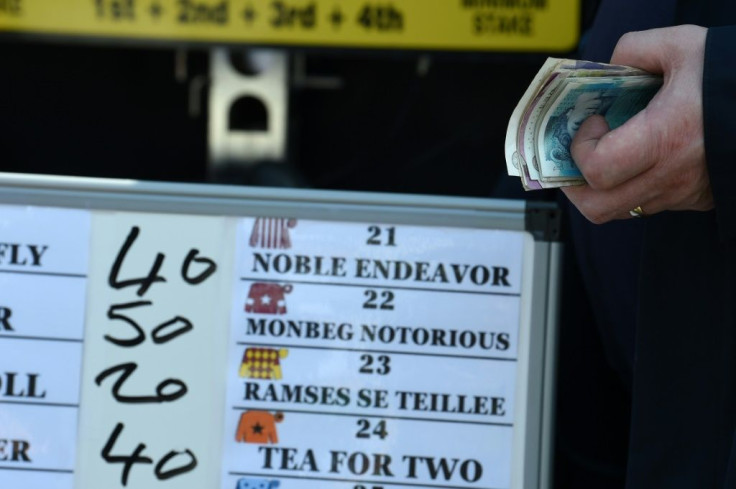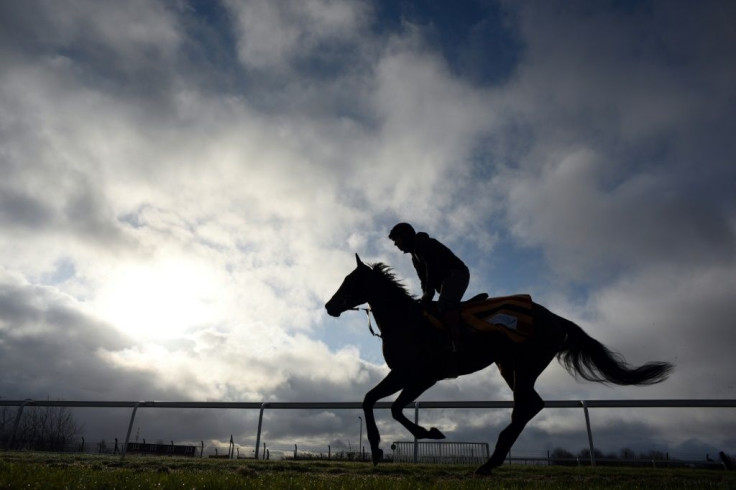British Gambling Industry Grapples With Under-age Problem

Raising the minimum legal age for betting and boosting education could be effective tools to tackle the scourge of problem gambling among children in Britain, say industry insiders.
The figures are stark.
The Gambling Commission, which licenses and regulates gambling, estimates that 55,000 children aged 11-16 have a gambling problem, with 450,000 gambling regularly.
The National Health Service this week launched a children and young person's gambling addiction service.
NHS England chief executive Simon Stevens has condemned the "fraction" spent by the industry on helping customers and their families deal with the direct consequences of addiction compared with the amount spent on advertising and marketing.
"The NHS should not be left to pick up the pieces," he said. "Gambling and internet firms have a responsibility to their users as well as their shareholders and should do their utmost to prevent rather than cash in on obsessive or harmful behaviour."
It comes at a time of growing concern that online gaming sites and targeted adverts are fuelling the problem.
William Woodhams, chief executive of Fitzdares bookmakers, said he feared problem gambling among all ages was far worse than anyone imagined.
"It is slightly like the opioid epidemic in the USA. You do not realise it is an epidemic as it happens privately," he told AFP at the Betting on Sports conference in London.
"We cannot reverse technology (the apps) we have put in the market and unfortunately bookies do seem to find legislation heavy-handed and want to self-legislate. But they have made so much money it is a tricky place to be in."
Woodhams believes raising the age limit from 18 is a logical step.
"My view on principle is you should not bet until you are 21. We (Fitzdares) are probably the only ones who restrict it to 21 and over," he said.
"My opinion is a student loan or money from your first job should not be spent on gambling.
"Of course I advocate going racing and to football matches but I just think the other things you can do at 18 like voting is one thing, army is another and driving a car another.

"However, spending money on sport needs another level of thought and maybe I am being rude to 18-year-olds but I think 21 is the right age.
"I was betting aged 16 but got my fingers burnt and stopped and learned my lesson that way."
'Life lessons'
Woodhams also believes that bookies talking about the perils of betting has a limited impact.
"The advertisements on TV educating you on betting are being paid for by bookmakers," he said. "I would not ask Johnnie Walker how much I should drink."
In its report last year, the Gambling Commission said 14 percent of 11 to 16-year-olds had spent their own money on gambling in the previous week -- compared to 13 percent who had drunk alcohol.
Types of betting included private bets with friends, National Lottery scratchcards and fruit machines.
The bishop of St Albans, Alan Smith, has described the number of young gamblers as a "generational scandal" and demanded the dangers be taken seriously.
Graham Weir, founder and CEO of Safer Gambling Solutions, which advises firms on reducing gambling-related harm, believes education is the key.
"It is potentially a problem area but also a big opportunity," he said after chairing a panel on the topic of leadership in safer gambling at the CasinoBeats Summit.
"I believe passionately it would be a good thing to do if we can educate the next generation of gamblers that you will not get rich on the back of it and it is neither sexy nor glamorous, and on the dangers of it."
Weir, who was previously group director of responsible gambling for bookmaking giants Ladbrokes Coral, said educational establishments also have a responsibility.
"On the school curriculum we teach them about sex, making money and taking drugs but for me it should be part of the curriculum at school and for young adults going to university as part of freshers' week.
"Teaching not that it is bad for you but, like everything else you do, you should not drive too quickly or drink too much. It is one of the life lessons you need to learn.
"To educate is better than dealing with the effects of people who go into gambling in blissful ignorance."
© Copyright AFP 2024. All rights reserved.





















